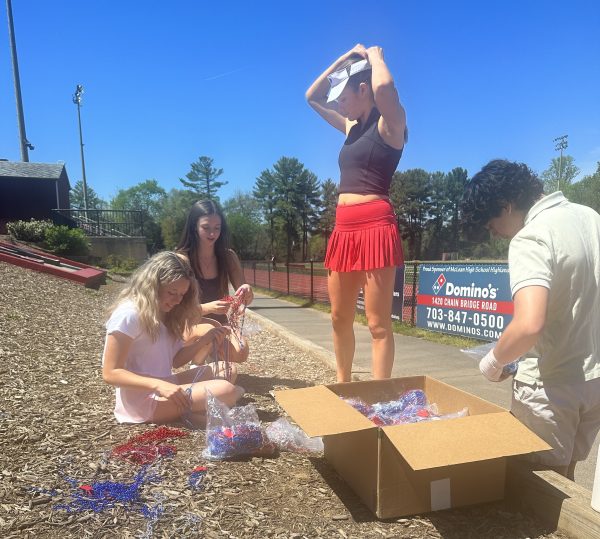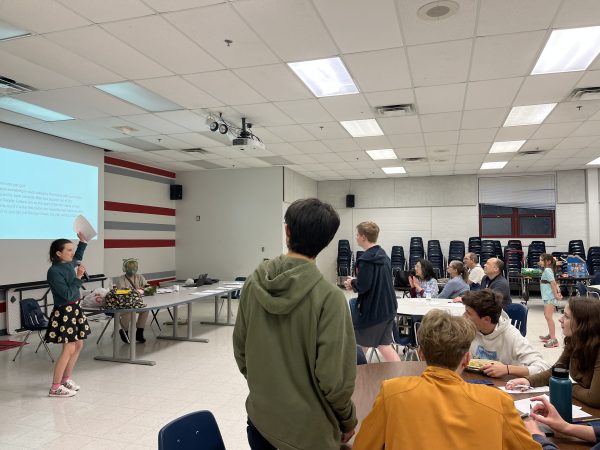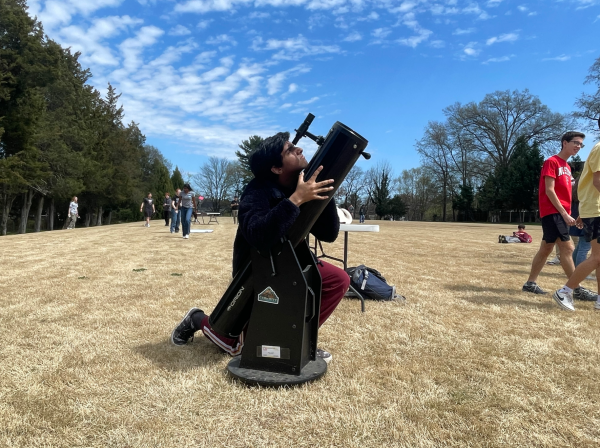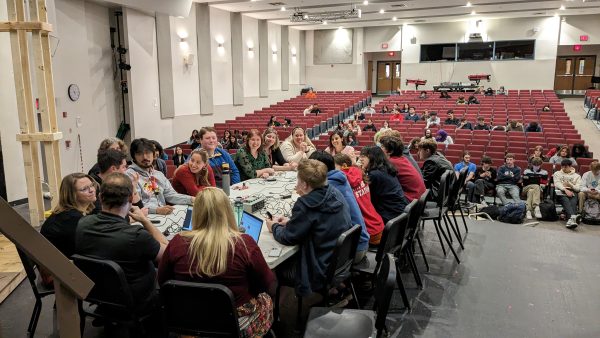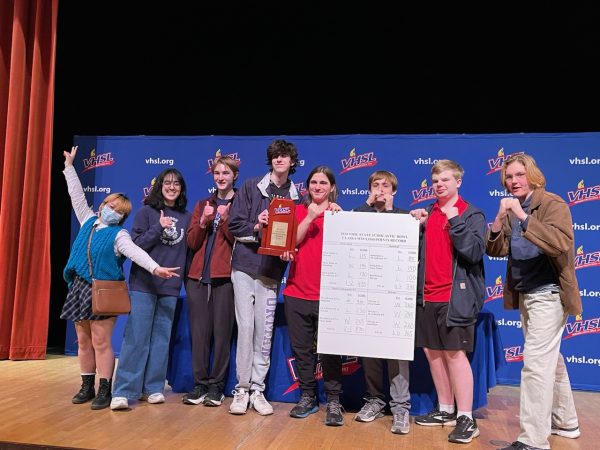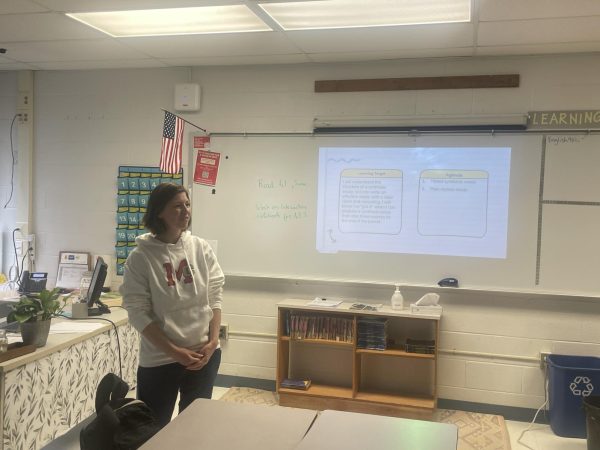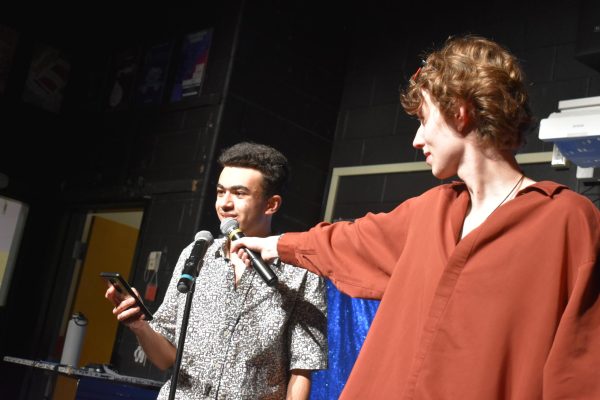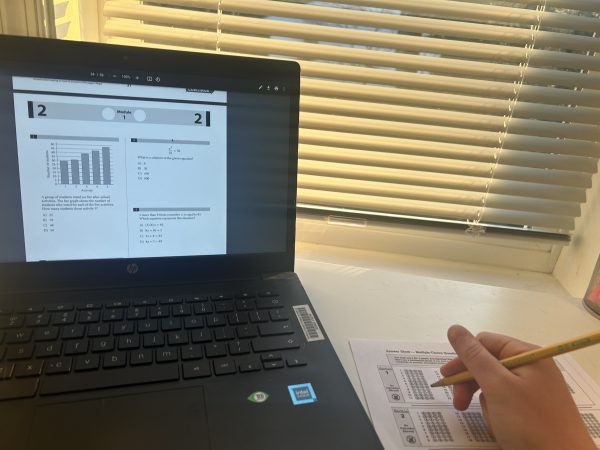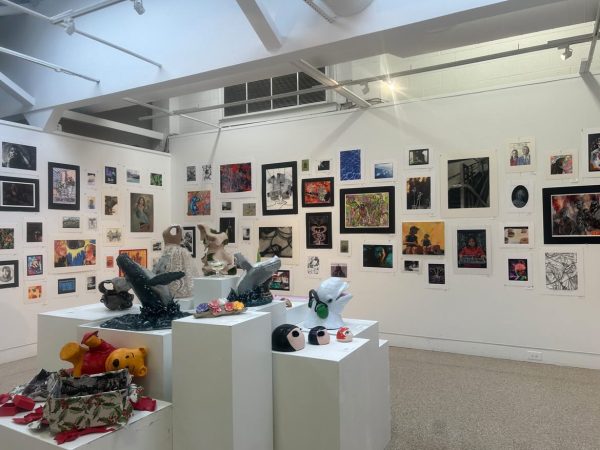Astronomy class encourages experiential learning
New class starts with five sections, uses observatory
November 22, 2016
Two years ago, the observatory in the cafeteria courtyard was in disuse. The large telescope inside the dome needed major repairs, and the inside of the building was disorganized.
“We had to resurface the mirrors, we wanted to buy a camera and we needed a new focuser, which is where you put the eyepiece in [because] that was broken,” parent volunteer and hobby astronomer Juergen Klenk said.
This year, the observatory is open, and McLean is offering five sections of astronomy as a class. Astronomy teacher Dean Howarth, who also sponsors the astronomy club, said he is glad he and science teacher Jeffrey Brocketti worked to establish the class for this year. Howarth, Brocketti and Andrew Diller are teaching astronomy this year.
“I was a bit worried that at McLean, people aren’t that interested in electives unless they’re AP or Honors, but at the same time astronomy has this sort of eternal level of interest in people that goes unfulfilled in many cases,” Howarth said. “I am pleased that it still exists here and that so many students were sort of like, ‘you know what, it’s not AP, but I’m still going to take it because I’m interested,’ which I find is very rewarding, and I’m glad that we did it.”
Senior Bella Marku is the co-president of the astronomy club, and she enrolled in the class this year.
“I’ve been really passionate about astronomy probably since I was in elementary school,” Marku said. “I’m really glad that I’m getting the opportunity to take it as a class because it’s going to go more in-depth than what we would be able to do just in the club, and I’m glad people are going to be able to have that opportunity now.”
“I firmly believe the first time someone looks through a telescope and sees the rings of Saturn…they’re pretty much hooked after that.”
— Astronomy teacher Dean Howarth
Marku said it is hard to determine what draws so many people to astronomy.
“I think it’s a topic that doesn’t really get covered in-depth [in elementary school]…and it’s really captivating because it’s learning more about our universe,” Marku said. “I think people want to grab onto an opportunity to learn more about it than they did in grade school.”
Howarth said he hopes the class will encourage students to make use of resources in the region.
“The big thing that I really hope works is that there are so many resources in this area that it’s insane not to exploit them, not only the resource we have at the dome, but I think it’s desperately sad that people will go through four years of high school and maybe go on one field trip,” Howarth said. “We are trying to get the students who take the astronomy course to…get out, do something, experience it firsthand.”
Senior Madeleine Walker said the experiential aspect of the class makes it more engaging.
“[My teacher] adds a lot of untraditional elements to the class, like he really is trying to get us to go out to the planetarium at Washington-Lee [High School] and using our own observatory to have a hands-on approach to the class, which makes it more vibrant than if we were just doing notes and stuff,” Walker said.
Klenk said students can gain new perspectives by learning astronomy.
“Earth is really tiny, and we live on this miniature planet somewhere out there in a sea of mostly nothing, but there are still some pretty interesting other structures,” Klenk said.
Class activities will sometimes run concurrently with club events.
“We’re going to try to run [class and club events] simultaneously because some people are like, ‘Oh, I can’t, I have six APs, I can’t sit in the class,’ so we still want to enfranchise those people,” Howarth said. “When we have things like sky watches, they’re open to anybody in the school. Naturally, for the course, attending those adds a component to your grade. It’s almost like the lab aspect of a science class.”
Howarth said he thinks learning astronomy can spark a lifelong interest in the subject.
“I think [the class] started off with a bang, and I think the more we get into it…the more people [will] realize that this is kind of unexplored territory and it’s kind of interesting,” Howarth said. “I firmly believe the first time someone looks through a telescope and sees the rings of Saturn…they’re pretty much hooked after that.”



